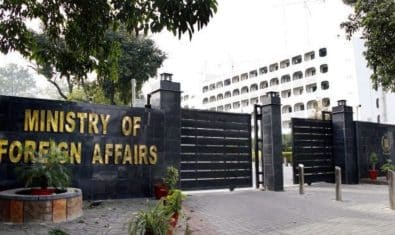Former finance minister Hafeez Pasha expressed concerns regarding the possible influence of International Monetary Fund (IMF) on the China-Pak Economic Corridor (CPEC) while speaking at the Friedrich-Ebert Foundation in Germany.
Pakistan’s persistent dependency on the IMF has only increased over the past few decades, and the situation is not expected to improve when foreign currency reserves run out next year, as expected.
The economic circumstances for Pakistan appear to be rather unseemly, considering the 5% depreciation of the Rupee vs Dollar, and the fact that currency exchange borrowings have recently increased from $5.8 billion to an alarming $6.5 billion.
Pasha commented that the government’s consistent manipulation of its fiscal data seems to have ended in it believing its own lies, and looming economic dangers for Pakistan follow.
Fiscal Predictions
The former minister made the following predictions:
- By the end of this year, the central government’s borrowings from the State Bank for budget management may amount to PKR 1 trillion.
- Pakistan’s external finance requirements will approximate to $32 billion for the next year and a half. Of this, CPEC and FDI could yield $8 billion.
- Considering that Pakistan’s current financial goals solely include preventing depletion of foreign reserves till June 2018 in a “holding-out” mission, no major reforms can be expected.
- By June 2018, foreign currency reserves would probably fall to $10 billion.
- Following the departure of the caretaker government next year, foreign reserves will fall further still, reaching a dangerous new low at less than $3 billion.
The only solution would be another bailout from the IMF, and a Letter of Support to obtain loans elsewhere as well.
Economic Threat to U.S.
Pasha’s analysis comprises of the suggestion that the United States, being a chief shareholder in the IMF, might impose non-economic conditions on Pakistan’s next knock on the door of the IMF for loans.
US policies are chiefly opportunistic, and it can direct the IMF based on its large shares in the Fund, so its influence on whatever decision IMF will make for Pakistan cannot be understated. The US could impose demands for the restriction of the CPEC project, which is an economic threat to it.
The suggestion is completely plausible, but for now the situation remains mostly uncertain.
Via Express Tribune



























Funny……..his wife Punjab’s finance minister.